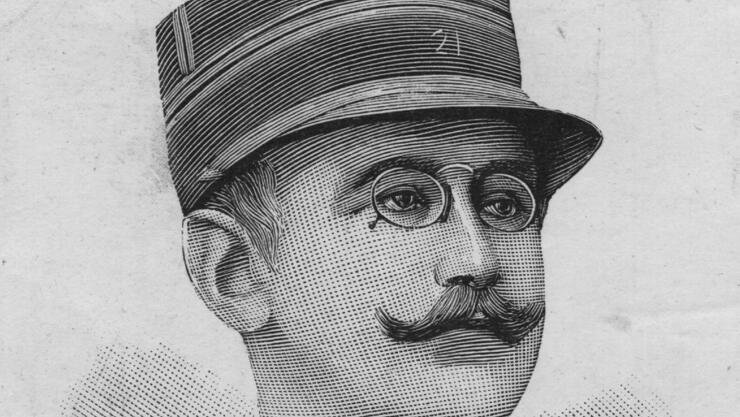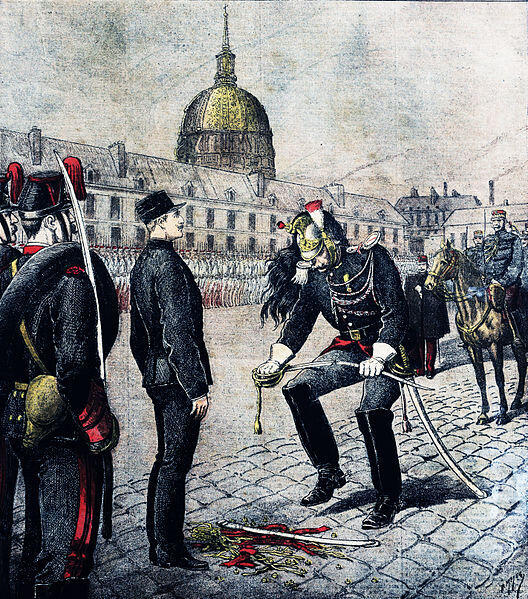France’s National Assembly Defense and Armed Forces Committee unanimously approved a bill on Wednesday to posthumously promote Alfred Dreyfus to the rank of brigadier general. The move clears the way for the full Assembly to vote on the legislation this coming Monday.
In a statement, the French Embassy in Israel said: “The French nation is committed to justice and does not forget. It is posthumously promoting Alfred Dreyfus to brigadier general — to correct a wrong, to honor a soldier, and to affirm that antisemitism, past or present, has no place in the Republic.”
Dreyfus was born in Mulhouse, Alsace, into a wealthy, assimilated Jewish family. After graduating from France’s elite École Polytechnique, he joined the army and rose to the rank of captain in 1892, eventually serving on the General Staff — at the time, as its only Jewish officer.
In 1894, French intelligence intercepted a memo from a French officer to a German embassy official in Paris. Suspicion quickly fell on Dreyfus, who was tried by a military tribunal. In December of that year, he was convicted of treason without solid evidence and, in January 1895, was stripped of his rank in a public degradation ceremony — his sword broken before a jeering crowd — and sentenced to life imprisonment on Devil’s Island in French Guiana.
The trial was deeply flawed and fueled by widespread antisemitism within the military and French society. A public campaign to clear Dreyfus’ name soon emerged, led by journalist Bernard Lazare. In 1896, new intelligence chief Lt. Col. Georges Picquart discovered that the real traitor was another officer, Maj. Ferdinand Walsin Esterhazy, a Hungarian-born adventurer.
However, Picquart’s predecessor, Maj. Hubert-Joseph Henry, who had originally linked the memo to Dreyfus, had forged documents to reinforce the false accusation. When Picquart attempted to expose the truth, he was removed from his position and sent to North Africa.
Public outrage grew, especially after novelist Émile Zola published his famous open letter, J’accuse (“I Accuse”), in January 1898, denouncing the military’s role in the miscarriage of justice. Despite mounting evidence, Esterhazy was acquitted in a military trial. Later that year, Henry’s forgeries were exposed, leading to his arrest and subsequent suicide.
Get the Ynetnews app on your smartphone: Google Play: https://bit.ly/4eJ37pE | Apple App Store: https://bit.ly/3ZL7iNv
Under pressure, the government annulled Dreyfus’s original verdict, and in 1899 h,e was brought before a new court. Despite the revelations, he was again convicted, though this time sentenced to only 10 years. Public outcry continued, and in 1906, France’s highest court overturned the conviction, fully exonerating Dreyfus. He was reinstated in the army as a major and went on to serve during World War I. He died in 1935 at the age of 76.
The Dreyfus Affair had profound repercussions in France and beyond. It split the country, sowed distrust in the military, and became a symbol of antisemitism and injustice. The affair deeply impacted Theodor Herzl, who was covering the trial as a journalist. Shocked by the antisemitic fervor in supposedly enlightened France, Herzl began formulating the idea of modern Zionism.
Over the years, Dreyfus’s name has become synonymous with the wrongful conviction of the innocent, and the affair remains one of history’s most enduring examples of institutional antisemitism. His letters and memoirs have been published in multiple volumes, keeping his legacy — and the lessons of the case — alive to this day.




